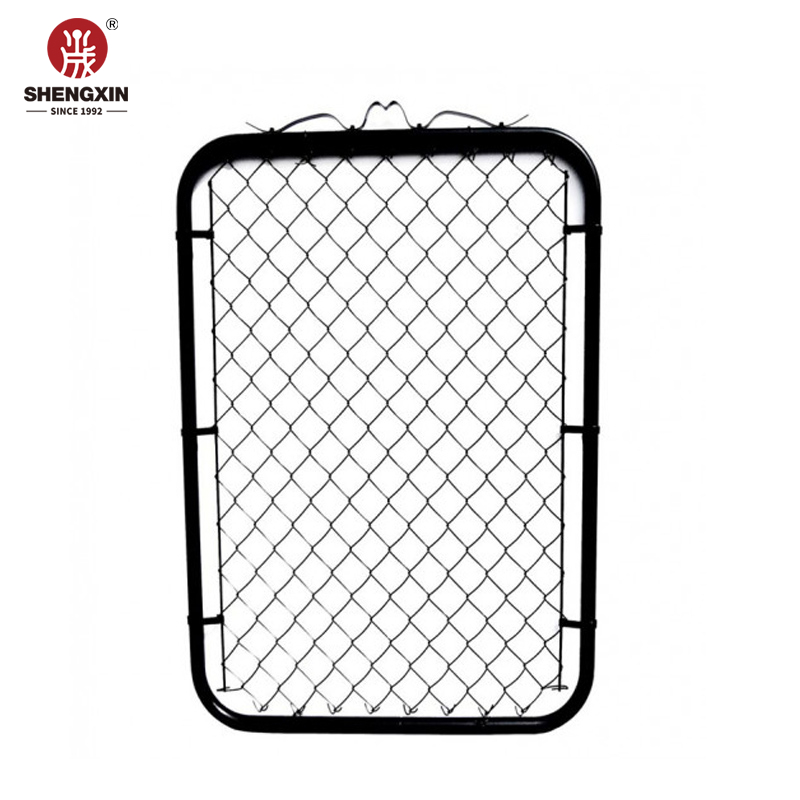
Aug . 13, 2024 21:41 Back to list
Durable Chain Link Fencing Solutions for Effective Sheep Containment and Safety
The Importance of Chain Link Fences for Sheep Management
When it comes to managing livestock, particularly sheep, one of the most crucial considerations is ensuring their safety and security. Among the various fencing options available, chain link fences have emerged as a popular choice for keeping sheep contained and protected. This article discusses the benefits of using chain link fences in sheep management, highlighting their advantages and practical applications.
Durability and Strength
One of the primary reasons chain link fences are favored in agricultural settings is their durability. Made from strong galvanized steel, these fences can withstand harsh weather conditions and the wear and tear associated with livestock. Sheep are curious animals, often testing the limits of their enclosures. A robust chain link fence provides the strength and resilience needed to resist their natural instincts to wander, making it an ideal choice for grazing areas.
Visibility and Surveillance
Another significant advantage of chain link fencing is its transparency. Unlike wooden or solid-panel fences, chain link fences allow for visibility from both sides. This feature is particularly beneficial for farmers and shepherds who need to keep an eye on their flock at all times. Being able to see through the fence enables effective monitoring of the sheep, ensuring that they are safe and healthy. Additionally, this visibility can deter potential predators, as it minimizes the advantage of concealment.
Easy Maintenance
Maintaining a fence is an ongoing task in any farming operation. Chain link fences require minimal maintenance compared to other types. They do not need to be painted or stained, and their galvanized coating protects them against rust and corrosion. For farmers, this translates into lower long-term costs and less time spent on upkeep. Regular inspections for any signs of wear or damage can usually be addressed quickly, keeping the fence intact and the sheep secure.
chain link fence for sheep products

Cost-Effectiveness
Economically, chain link fencing is often more cost-effective than wood or composite fencing. While the initial installation cost may be similar, the longevity and low maintenance requirements of chain link fences reduce the overall financial burden over time. This cost efficiency makes chain link fencing an attractive option for sheep farmers who are looking to optimize their resources while ensuring their livestock's safety.
Flexibility in Design
Chain link fences come in various heights and gauges, making them adaptable to different environments and needs. Farmers can customize the height to discourage sheep from jumping over while ensuring that the fence is tall enough to deter larger predators. Moreover, chain link fencing can be installed on uneven terrain, providing a secure enclosure in areas where traditional fencing might struggle.
Enhanced Security
Security is paramount when it comes to livestock. Chain link fences can be complemented with additional security features such as barbed wire or electrification. These enhancements can provide an extra layer of protection against predators and prevent sheep from escaping. For farms located in areas with higher wildlife activity, reinforcing the chain link fence helps safeguard the flock more effectively.
Conclusion
In summary, chain link fences offer a range of advantages that make them an excellent choice for sheep management. Their durability, visibility, low maintenance requirements, cost-effectiveness, flexibility, and enhanced security features cater well to the needs of sheep farmers. By investing in chain link fencing, livestock owners can ensure a safe and secure environment for their sheep, ultimately contributing to the overall success of their farming operations. As agriculture evolves and the demand for efficient livestock management grows, the role of reliable fencing solutions like chain link fences will undoubtedly remain significant.
-
Powder Coated Double Wire Mesh Fence-Anping County Shengxin Metal Products Co., Ltd
NewsAug.03,2025
-
Powder Coated Double Wire Mesh Fence - Anping County Shengxin Metal Products Co., Ltd
NewsAug.03,2025
-
Power Coated 358 Anti Climb Mesh Fence for Airports
NewsAug.03,2025
-
Powder Coated Double Wire Mesh Fence-Anping County Shengxin Metal Products Co., Ltd.
NewsAug.02,2025
-
Powder Coated Double Wire Mesh Fence | Anping County Shengxin Metal Products Co., Ltd
NewsAug.02,2025
-
Powder Coated Double Wire Mesh Fence for Germany Market-Anping County Shengxin Metal Products Co., Ltd|Durability, Aesthetics, Compliance
NewsAug.02,2025
